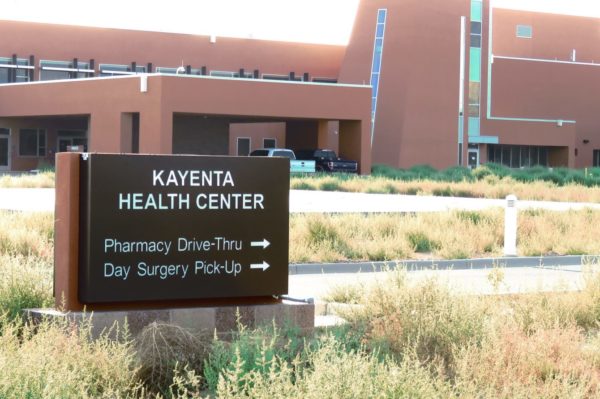
- Details
- By Native News Online Staff
WASHINGTON — ABC News on Monday reported New Mexico Gov. Michelle Lujan Grisham told President Donald Trump during a phone call that “incredible spikes” in COVID-19 (novel coronavirus) cases on the Navajo Nation could “wipe out” some tribal nations. The call was recorded between the president and the nation’s governors and obtained by ABC News.
"We're seeing incredible spikes in the Navajo Nation, and this is going to be an issue where we're going to have to figure that out and think about maybe testing and surveillance opportunities," Grisham said.
Later in conversation, Lujan told the president: “And it could wipe out those tribal nations."
“Boy, that’s too bad for the Navajo nation – I've been hearing that." Trump said to Lujan.
More Stories Like This
Native News Weekly (August 25, 2024): D.C. BriefsUS Presidents in Their Own Words Concerning American Indians
Native News Weekly (December 14, 2025): D.C. Briefs
Wounded Knee Massacre Site Protection Bill Passes Congress
Two Murdered on Colville Indian Reservation
Help us defend tribal sovereignty.
At Native News Online, our mission is rooted in telling the stories that strengthen sovereignty and uplift Indigenous voices — not just at year’s end, but every single day.
Because of your generosity last year, we were able to keep our reporters on the ground in tribal communities, at national gatherings and in the halls of Congress — covering the issues that matter most to Indian Country: sovereignty, culture, education, health and economic opportunity.
That support sustained us through a tough year in 2025. Now, as we look to the year ahead, we need your help right now to ensure warrior journalism remains strong — reporting that defends tribal sovereignty, amplifies Native truth, and holds power accountable.
 The stakes couldn't be higher. Your support keeps Native voices heard, Native stories told and Native sovereignty defended.
The stakes couldn't be higher. Your support keeps Native voices heard, Native stories told and Native sovereignty defended.
Stand with Warrior Journalism today.
Levi Rickert (Potawatomi), Editor & Publisher

